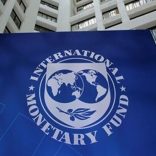IMF lowers projections for Mozambique. Angola, Sao Tome; upgrades Cabo Verde, Guinea-Bissau, ...
Confidential report alerts investors to possible Mozambique ‘default’

The government of Mozambique admitted in March this year that any borrowing beyond the debt sustainability threshold may have an adverse effect on the country’s ability to pay and force it to default.
According to a memorandum accompanying the confidential prospectus sent to holders of Ematum bonds in March, the Ministry of Finance lists the possibility of more loans among the default risks.
“Any future loans beyond the sustainable levels of debt may have an adverse material effect on the economy of Mozambique and its ability to service debt, including the sovereign debt bonds that replace the Ematum obligations,” the document reads.
Altogether, there are 21 such risks identified in the document, 19 internal and two external. The external risks are the possibility of “volatility in global raw material prices” and a “slowdown in world economy, instability in international financial markets and other negative external economic shocks”.
Among the 19 internal risks identified in the document that serves as a financial and economic presentation of Mozambique to investors, and that was conveyed by Credit Suisse and the Russian VTB, it is admitted that “investing in securities [ ‘securities’ in English in the original] in emerging markets such as Mozambique generally involves a higher risk than in developed markets”.
The document also notes that “Mozambique has in the recent past experienced volatility and violence in relation to the acquisition or maintenance of political power”, and adds that if a significant degree of “political violence or instability occurs, the manufacturing industry, agriculture, mining and quarrying, tourism and foreign investment levels, among other things, could suffer, adversely affecting the economy of Mozambique”.
In addition to the admission of over-dependence on imports and agriculture, the possibility of natural gas projects being postponed and difficulties with power supply, the document also explains that “certain segments of the Mozambican economy are not registered and a failure by the Government to broaden the tax base could have a negative impact on economic growth”.
The memorandum also notes that “the banking sector is highly concentrated”, and says: “if the Government is unable to achieve budgetary targets and limit the budget deficit, the Mozambican economy may be adversely affected.”
The Memorandum of Information, whose authorship is attributed to the Republic of Mozambique, is part of the prospect distributed in March by the two banks to potential investors in sovereign debt which already held Ematum bonds, and includes a set of information about the country and, in particular, the value public debt since 2012 in addition to the explanation in detail of the proces of exchanging the securities for sovereign debt securities.













Leave a Reply
Be the First to Comment!
You must be logged in to post a comment.
You must be logged in to post a comment.